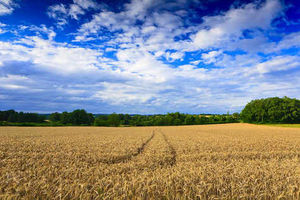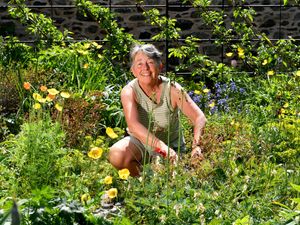Shropshire farmland among most expensive in the UK
Farmland in Shropshire is among the most expensive in the UK – doubling in value in the last four years, it emerged today.

Farmland in Shropshire is among the most expensive in the UK – doubling in value in the last four years, it emerged today.
The average price of an acre in the West Midlands region, which is the most expensive in the country, is £7,500 but in some parts of Shropshire an acre of land is selling for up to £12,000 –?causing concern in the county farming industry.
The Royal Institution of Chartered Surveyors (RICS), which has compiled the figures, says the jump is driven by growing interest from commercial farmers looking to expand.
But county farmers say they are worried about the long-term effects of the sky-high prices on the industry.
Rob Alderson, chairman of the Shropshire branch of the National Farmers' Union, said the high prices were good news for farmers about to retire, but he was very concerned for young people trying to get into the industry.
He feared they could be priced out of the market as the high value would also affect rental costs.
"It concerns me that with such high values it's going to make it more difficult for young people to start off in farming," he said.
"It's going to put a lot of pressure on the production of food."
Les Thomas, an auctioneer with McCartneys in Craven Arms, said land prices had doubled over recent years.
"It was £3,000 or £4,000 per acre three of four years ago, but now it's the best land at £7,000 to £12,000 per acre," he said.
Mr Thomas said one recent sale in the south of the county saw about 83 acres of land selling for £11,000 per acre.
But he admitted that the effect of the high prices on some farmers would be 'crippling'.
David Giles, of Halls auctioneers in Shrewsbury, said prices were 'definitely' at an all-time high.
"The average is probably £8,000 an acre but we do see parcels of making five figures an acre," he said.
"We seldom see land selling at under £6,000 an acre these days," he said.
By Andrew Owen




